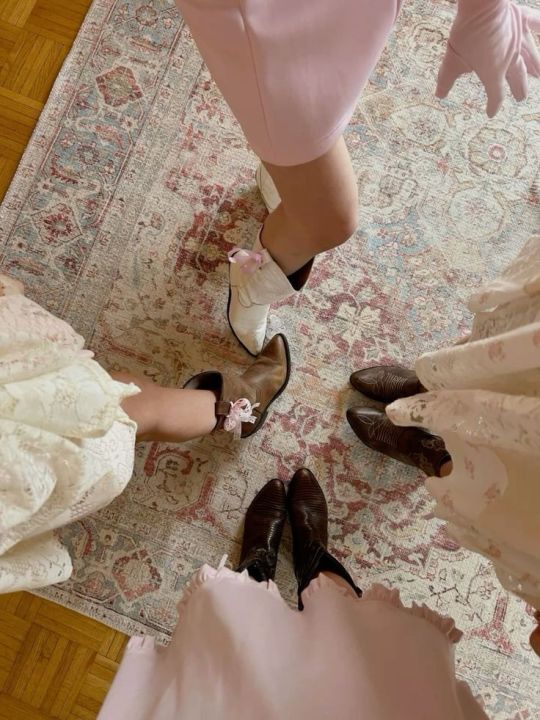#Robert Cialdini
Explore tagged Tumblr posts
Text
Started reading Robert Cialdini's Influence: Science and Practice. And it's a book drawing on social science which was written before 2010, which has it on thin ice going in. And then in the first few pages it cites (1) a study by Dan Ariely and (2) that study about the copier.
Not off to a good start!
#robert cialdini#statistics#replication crisis#influence: science and practice#dan ariely#Predictably Irrational#copier study
5 notes
·
View notes
Text
0 notes
Text
''As a cautionary note, I’ve found it’s very possible in the negotiation context to harm your own chances of a favorable settlement by unintentionally fueling optimism bias in the other party. I have seen cases in which negotiators, hoping to cut to the chase, make a very reasonable first offer or demand. The other side, expecting the initial offer to merely be a starting point, becomes more emboldened by the prospect of coming out with a far better deal than was first imagined. As a result, the other party digs in its heels, and its counteroffer is far less favorable than it otherwise might have been. Social psychologists refer to this phenomenon as anchoring.''
-Peter Romary, Elaboration on Applying the Elicitation Model in Business, in Law and in Everyday Life
1 note
·
View note
Text

6/52 Robert Cialdini’s Influence, New & Expanded: A review
It's very rare for me to finish an audiobook and want to immediately buy it as a physical copy.
Influence is one such book.
I liked it that much, even though nothing that is said in the book is especially groundbreaking or surprising.
People are easier to convince if they like you, if you're an authority figure, if you're part of their in-group, of they agreed to something like that in the past, if they can get something rare,if you've done them a favor….
Rocket science, this isn't.
And yet, I'm reminded of another book I have, which I also have a physical copy of; and which I reread on occasion, something that's even more rare!!
One of the few books I consider to have influenced my life: “How to win friends & influence people”.
I am not good bad at social relationships. Always been.
I've actually improved a lot over the years - I've even been called charismatic once or twice - but that's because I've put in some effort, and it doesn't change the fact that my first instincts when dealing with people is to hate and despise them (but I swear, I'm a good person at heart! /jk ).
Which is why I'm kind of pathetically grateful that books like these exist.
Actually, I'm even more grateful that this book exists, because it's based on science.
Non scientists probably don't know it, but the whole field of psychology has had (and is in) a decade and a half of crisis - called the Replication Crisis, actually - because tons of scientific studies in the field…just failed to replicate.
When they were run a second time….they didn't work.
Except for the boring ones, the ones that make you think “I could've told you that!”
In short, like the studies used in this book.
Strongly recommend.
0 notes
Text
SRSLY, this is exactly why I shouldn't run a cult. I already think I'm ridiculous, and half of it is synthetic marketing with a soupçon of interpersonal heuristics.
I'm still very happy, right now. Not sure why. Proselytizing is useless, because they only send you out to scare you back into the flock. This is still incredibly dangerous language, which I know from direct, personal experience.
Someone read one of my journals, the wrong way, a long time ago, and I'm not implying "upside-down." There were several equally unfortunate witnesses. One of whom appears on your television frequently. He was a great guy, too.

#comparative religion#religious cults#artificial intelligence#social influence#edward bernays#robert cialdini#bodhisattva
0 notes
Text

Influence: The Psychology of Persuasion - Robert B. Cialdini
0 notes
Text
tips to get everything you want ✶⋆.˚
PART 1
under the cut, you'll find psychological advice that will get you a YES for everything you ask for. think of these as tools for the next time you need to seduce, request, or attain.



<images from pinterest, resource used: influence by robert cialdini>
☾₊ ⊹ USING THE CONTRAST PRINCIPLE
The Contrast Principle is alllll about perception and how our brains exaggerate characteristics when we differentiate them.
For example: a bucket of cold water will feel even colder if we've just dipped our hands in warm water. OR if you've spent the whole day looking at supermodels, the rest of the world seems less attractive by comparison.
This is how retailers get you. They show the most expensive items up front so everything else looks cheaper -- even at a luxury price.
How do we apply this?
The usual script is as follows:
"Hey, did you want to [BIG THING THEY'RE NOT GOING TO DO]?" "No thanks. Sorry." "Oh, how about [SMALLER THING YOU ACTUALLY WANT] instead?"
Easy, right? Giving you what you want looks more desirable to everybody and they're more willing to meet you where you've "conceded".
☾₊ ⊹RECIPROCITY
Everyone is more likely to say yes after you've already given them a gift or done them a favour.
Your favour could be something small like buying them a drink or helping them out on an errand but, no matter how small, the favour triggers feelings of social obligation that make others feel obligated to repay you.
IT IS IMPORTANT that you aren't doing favours and clearly expecting something back. This is a gift you are giving, not payment.
This is why the script above is so useful, because it looks like you've conceded to something smaller and the other party feels like they're in control of the conversation, even if you've planned it all in advance.
This goes the other way, though, so be careful. When a man buys you a drink or even buys you an expensive necklace, you should only accept them if you're good at saying NO further down the line. I've had to deal with a few pissy guys in my time who thought I was obligated to entertain them since they bought me a drink out of nowhere.
The reason I included the caveats above is because reciprocity and obligation are powerful human experiences, and it can be hard to pull away from a mindset we've all been socialised to accept.
☾₊ ⊹IN SUMMARY
If you don't have time to read all that, here's two takeaways:
Negotiate down to what you desire Put generosity into the world, get it back tenfold
... and that's all for Part 1, a second part should be up very soon.
⋆⁺₊⋆ ☾⋆⁺₊⋆
Yours secretly,
Starlight
#girlslikestarlight#female manipulator#it girl#cinnamon girl#girlblogging#girlhood#becoming that girl#that girl#it girl energy#hyper feminine#self growth#self development#self improvement#tips#dream girl tips#advice#self reflection#self love#self care
22 notes
·
View notes
Note
Hola!! Me encanta tu blog! queria consultarte que libros de modales, etiqueta y protocolo recomiendas?? Muchas gracias!
Hi!! Love your blog. What are some etiquette and protocol books you recommend? (book of manners) Thanks <3
Hi love! Thank you so much. I would say the only books I've read on the subject have to do with effective and sociable communication, so I'll list a few of those below for you to take a look at:
Polished: The Guide to Excellence for the Modern Professional by Tiffany Adams
How To Win Friends & Influence People by Dale Carnegie
Never Split The Difference by Chris Voss
Influence: The Psychology of Persuasion by Robert Cialdini
The 2-Hour Cocktail Party by Nick Gray
How to Talk to Anyone: Learn the Secrets of Social and Communication Skills, Better Small Talk, and How to Talk to Anybody About Everything by Peter L. Lewis
The 7 Habits of Highly Effective People by Stephen Covey
Women, Work & the Art of Savoir Faire: Business Sense & Sensibility by Mireille Guiliano
Crucial Conversations Tools for Talking When Stakes Are High by Joseph Grenny
The Culture Code: The Secrets of Highly Successful Groups by Daniel Coyle
Hope this helps xx
#book rec list#book rec#etiquette#manners#luxurylifestyle#higher self#high value woman#social skills#interpersonal relationships#communication skills#level up#femme fatale#dark femininity#dark feminine energy#self improvement#it girl#dream girl#queen energy#bookblr#business#relationships#making friends#classy life#self awareness#female excellence#female power#girl advice#femmefatalevibe
170 notes
·
View notes
Text
communication



1. Escucha Activa
Presta Atención: Escucha a los demás con total atención. No solo oigas las palabras, sino también el tono y el lenguaje corporal.
Refleja y Pregunta: Refleja lo que dices para mostrar comprensión y haz preguntas para profundizar en el tema.
2. Lenguaje Corporal
Postura y Contacto Visual: Mantén una postura abierta y segura. El contacto visual muestra confianza y empatía.
Gestos y Expresiones: Usa gestos y expresiones que complementen tus palabras. Asegúrate de que tus movimientos sean naturales y no forzados.
3. Uso del Lenguaje
Elige las Palabras Cuidadosamente: Usa un lenguaje claro, positivo y enfocado en los beneficios para tu audiencia. Evita tecnicismos o jergas innecesarias.
Lenguaje Persuasivo: Usa técnicas de persuasión como la reciprocidad, la autoridad y la escasez. Por ejemplo, muestra cómo lo que ofreces puede beneficiar a la otra persona.



4. Empatía y Conexión
Ponte en el Lugar del Otro: Trata de entender las emociones y perspectivas de la otra persona. La empatía ayuda a construir una conexión genuina.
Personaliza el Mensaje: Adapta tu comunicación según la persona con la que estás hablando. Considera sus intereses, preocupaciones y estilo de comunicación.
5. Confianza y Seguridad
Proyecta Seguridad: Habla con claridad y con un tono de voz firme. La seguridad en tu mensaje hace que sea más creíble y persuasivo.
Autoconocimiento: Conoce tus fortalezas y áreas de mejora. Trabaja en construir una autoestima sólida.
6. Práctica y Retroalimentación
Practica Regularmente: Participa en debates, presentaciones o simplemente en conversaciones diarias. Cuanto más practiques, mejor serás.
Busca Retroalimentación: Pide a amigos, familiares o colegas que te den su opinión sobre tu estilo de comunicación. Usa esa retroalimentación para mejorar.
7. Lectura y Aprendizaje
Lee sobre Comunicación: Libros como "Cómo ganar amigos e influir sobre las personas" de Dale Carnegie o "Influence: The Psychology of Persuasion" de Robert Cialdini ofrecen excelentes consejos.
Estudia a los Expertos: Observa cómo los oradores y comunicadores expertos manejan sus presentaciones y conversaciones. Analiza y aprende de sus técnicas.



8. Desarrollo Personal
Trabaja en tu Inteligencia Emocional: La capacidad para manejar tus propias emociones y entender las de los demás es crucial para una comunicación persuasiva.
Desarrolla el Carisma: El carisma se puede desarrollar a través de la autenticidad, la pasión y la capacidad de conectar genuinamente con los demás.
#lifestyle#self love#that girl#desarrollo personal#communication#practice#romantizing life#dream life#dream girl#pink#lenguaje#bienestar#everything pink#text post#books#conocimiento#empathy#self care#self learning#confidence#be confident#wish me luck 🍀#lucky girl affirmations#wishlist#new era#pinterest#vision board#future#digital artist#information
6 notes
·
View notes
Text

The PC port of "BioShock" takes players deep into the underwater city of Rapture, a dystopian vision built on the ideals of objectivism and unchecked scientific progress. Central to the narrative is the character of Atlas, who is later revealed to be Frank Fontaine. Fontaine’s intricate web of deception is a pivotal element of the game, exploring themes of manipulation, trust, and identity. This psychological analysis delves into the deceptive tactics employed by Fontaine and draws upon the insights of famous psychologists to understand the psychological mechanisms at play.
"BioShock" begins with the protagonist, Jack, crashing into the Atlantic Ocean and finding his way to Rapture. Guided by the seemingly benevolent Atlas, Jack embarks on a journey through the city, following Atlas’s instructions to survive and ostensibly to rescue Atlas's family. This narrative setup establishes a relationship of trust and dependency, which is later shattered when Atlas reveals his true identity as Frank Fontaine, a ruthless manipulator. This betrayal is not only a narrative twist but also a profound psychological shock that prompts an examination of deception and manipulation.
The deception employed by Fontaine can be examined through the lens of cognitive dissonance, a theory developed by Leon Festinger. Cognitive dissonance occurs when an individual experiences discomfort due to holding conflicting beliefs or behaviors. Throughout most of the game, players are led to trust Atlas, forming a bond based on mutual goals and empathy. When the truth about Fontaine's identity is revealed, players experience cognitive dissonance, as the trusted guide turns out to be the antagonist. This dissonance heightens the emotional impact of the deception, making the betrayal feel personal and profound.
Fontaine’s manipulation techniques can also be analyzed using Robert Cialdini’s principles of influence, particularly the principles of authority and reciprocity. Fontaine, as Atlas, presents himself as a figure of authority and a savior, which compels players to follow his guidance. He also employs reciprocity by offering help and protection, creating a sense of indebtedness that motivates players to assist him in return. These psychological principles explain how Fontaine effectively manipulates both Jack and the players, demonstrating the power of perceived authority and reciprocation in shaping behavior.
Erik Erikson’s theory of psychosocial development, particularly the concept of trust versus mistrust, provides further insights into the psychological impact of Fontaine’s deception. The early stages of the game build a foundation of trust between Jack and Atlas, akin to the development of trust in early childhood. When this trust is broken, it leads to a crisis similar to the mistrust experienced by infants who are betrayed by their caregivers. This violation of trust forces players to reassess their understanding of the game’s world and their own judgment, highlighting the fragility of trust in human relationships.
"BioShock" and the character of Frank Fontaine offer a rich exploration of psychological themes related to deception, manipulation, and trust. By examining Fontaine's tactics through the theories of Festinger, Cialdini, and Erikson, we gain a deeper understanding of the psychological mechanisms that make his betrayal so impactful. The game challenges players to confront the discomfort of cognitive dissonance, the power of manipulation, and the vulnerability of trust. This analysis not only enhances our appreciation of "BioShock" as a narrative experience but also underscores the intricate interplay of psychological factors that drive human behavior and relationships. Through its complex portrayal of deception, "BioShock" serves as a compelling study of the dark side of human psychology, leaving a lasting impression on players and scholars alike.
7 notes
·
View notes
Text

around the 10:30 mark of the movie, right before the can't stop the world montage, you can briefly see freeze girl in the left corner of the screen, and it looks like she's holding a book so i'm gonna go out on a limb and say that, while she absolutely does prefer audiobooks because listening to them allows her to do multiple things at once, khione has been known to bring books to high school and college with her.
her taste in books ranges from high fantasy to urban fantasy to contemporary. she can never settle on or stick with one genre.
furthermore, she has a soft spot for retellings and finds it personally important to read books written by queer writers and writers of color. especially asian writers.
even so, there are a few books in her collection that do stand out like: the secrets we kept by lara prescott, influence by robert b. cialdini, phd and the alice network by kate quinn.
other books in khione's collection include:
lord of the rings (jrr tolkien)
the hunger games trilogy (suzanne collins)
jasmine throne (tasha suri)
sons of darkness (gourav mohanty)
the daevabad trilogy (s.a. chakraborty)
legendborn (tracey deonn)
the heroine complex series (sarah kuhn)
the stand in (lily chu)
we hunt the flame (hafsah faizel)
the candle and the flame (nafiza azad)
i feed her to the beast and the beast is me / i am the dark that answers when you call (jamison shea)
darker by four (june cl tan)
jade city (fonda lee)
i wish you would (eva des lauriers)
this summer will be different (carley fortune)
beauty queens (libba bray)
forged by magic (jenna wolfhart)

6 notes
·
View notes
Text
Mathematical Formulas for Building Friendship and/or Romance
In exploring the intricate dynamics of interpersonal relationships, we draw upon psychological principles from influential works, including "The Like Switch" by Jack Schafer, "The Social Animal" by Elliot Aronson, "Influence: The Psychology of Persuasion" by Robert Cialdini, "The Art of Seduction" by Robert Greene, "Attached: The New Science of Adult Attachment" by Amir Levine and Rachel Heller, and "The Dark Side of Human Nature" by Dr. Kevin Dutton.
By distilling these principles, we can derive mathematical formulas to conceptualize the complex processes of making friends and fostering romantic love.
A focus on those who are introverted or less social are included, as these tend to be those who have a harder time with making friends and/or finding romantic partners.
─━━━━━━━━━━━━━━━━━━━━━━━━━━⊱⚛⊰━━━━━━━━━━━━━━━━━━━━━━━━━━─
Formula for Making Friends: First Meeting and Building Affection Over Time
1. Mathematical Formula for First Meeting:
Let ( F ) represent the likelihood of making a friend in the first meeting, which can be calculated as:
[ F = (C + I + R) \times (E + V + S) \times \frac{1}{D} ]
Where:
( C ) = Charisma (scale of 1 to 10)
( I ) = Interest shown (scale of 1 to 10)
( R ) = Rapport established (scale of 1 to 10)
( E ) = Environmental context (scale of 1 to 5, based on factors like familiarity and comfort)
( V ) = Values similarity (scale of 1 to 5)
( S ) = Social skills (scale of 1 to 10)
( D ) = Distance from the person (in feet; a lower distance increases friendliness)
The resulting ( F ) value will yield a score between 0 and a maximum threshold, indicating the potential to cultivate a friendship.
─━━━━━━━━━━━━━━━━━━━━━━━━━━⊱⚛⊰━━━━━━━━━━━━━━━━━━━━━━━━━━─
2. Mathematical Formula for Building Affection Over Time:
As relationships develop, the formula changes to accommodate ongoing interactions:
[ A = (T + C + D + A_{r}) \times \frac{F}{N} ]
Where:
( A ) = Affection level (scale of 0 to 100)
( T ) = Time spent together (in hours)
( C ) = Communication quality (scale of 1 to 10)
( D ) = Depth of shared experiences (scale of 1 to 10)
( A_{r} ) = Affection expressed reciprocally (scale of 1 to 10)
( F ) = Friendship score from the first meeting
( N ) = Number of negative interactions (such as misunderstandings or conflicts)
The aim is to maximize ( A ) over time, demonstrating growth in affection and intimacy.
Variables for Common Personality Types
Understanding personality types can further enhance the calculations. Using the Myers-Briggs Type Indicator (MBTI) framework, we categorize individuals into 16 types, each influencing the dynamics of friendships and romance.
Extroverted types may score higher in ( C ) and ( I ) during initial encounters, while introverted types might require higher values in ( T ) and ( D ) for deeper connections.
The alignment of personality types may also affect ( V ), where compatibility significantly enhances friendship and romantic potential.
─━━━━━━━━━━━━━━━━━━━━━━━━━━⊱⚛⊰━━━━━━━━━━━━━━━━━━━━━━━━━━─
Chaos Theory and Risk Factors
In assessing relationships, Chaos Theory becomes pivotal in calculating risk factors. The unpredictable nature of human interactions means that even minor variations can lead to vastly different outcomes.
Risk Factor Formula:
[ R = \sum (X_{i}) \times (P_{i}) ]
Where:
( R ) = Overall risk level of the relationship
( X_{i} ) = Risk factors (e.g., misunderstandings, external pressures, past traumas)
( P_{i} ) = Probability of each risk factor occurring (on a scale from 0 to 1)
Higher ( R ) values signify greater risk, indicating the need for proactive measures to mitigate issues.
─━━━━━━━━━━━━━━━━━━━━━━━━━━⊱⚛⊰━━━━━━━━━━━━━━━━━━━━━━━━━━─
Challenges and Solutions
Common problems encountered in building friendships and romantic relationships include:
Miscommunication:
Solution: Enhance communication skills (Success Rate: 80% if both parties are willing).
Differences in Interests:
Solution: Find shared activities (Success Rate: 70%).
Time Constraints:
Solution: Schedule regular meet-ups (Success Rate: 75%).
─━━━━━━━━━━━━━━━━━━━━━━━━━━⊱⚛⊰━━━━━━━━━━━━━━━━━━━━━━━━━━─
Optimal Meeting Environments for Introverts
For a shy, reclusive introvert, optimal places for meeting potential friends include:
Online platforms (Success Rate: 85% due to controlled interaction).
Bookstores or libraries (Success Rate: 75% with a common ground of interests).
Interest-based workshops (Success Rate: 80% leveraging shared experiences).
─━━━━━━━━━━━━━━━━━━━━━━━━━━⊱⚛⊰━━━━━━━━━━━━━━━━━━━━━━━━━━─
Approaching Someone Briefly Met
To get closer to someone you only briefly met, utilize social media or mutual acquaintances to reconnect. Leverage situational contexts like similar events or clubs to increase chances of interaction.
Alternatively; Use what information you have (such as where you met, their name, ecs.) and use this to ensure more meetings can occur.
─━━━━━━━━━━━━━━━━━━━━━━━━━━⊱⚛⊰━━━━━━━━━━━━━━━━━━━━━━━━━━─
UML Sequence Diagrams
School Environment:
Identify shared classes → Initiate conversation → Share interests → Suggest collaboration on projects → Schedule study sessions.
Social-Based Environment (Bar/Coffee Shop):
Observe body language → Approach with a friendly compliment → Engage in light conversation → Ask open-ended questions → Exchange contact details.
─━━━━━━━━━━━━━━━━━━━━━━━━━━⊱⚛⊰━━━━━━━━━━━━━━━━━━━━━━━━━━─
Conclusion
By employing these formulas and strategies, individuals can calculate the likelihood of establishing friendships and romantic relationships. And by following the principles in this, it should make it simpler to make new friends and/or romantic partners.
Understanding the interplay of various psychological principles, personality types, and environmental factors allows for a more systematic approach to human connection.
While the inherent unpredictability of human interactions introduces complexity, a mathematical framework can guide and optimize the pursuit of friendships and love.
#friend#friends#friendship#how to#how to make friends#seduction#romance#love#science#math#mathematical#formula#formulae#social science#not my most important work but perhaps my most recent#my creation
4 notes
·
View notes
Text
#ilcoachdelledonne#giancarlofornei#libri consigliati#libri da leggere#libri sulla comunicazione#robert cialdini
0 notes
Text
Unveiling the Science of Attraction: Navigating Relationships with Psychology and Sass
Alright, Tumblr fam, buckle up! We're about to dive into the world of dating dynamics, relationships, and how to navigate it all with a mix of psychology and science. Think of it like becoming the male version of Ana de Armas (but not that intense), and it's gonna be a wild ride.
Lesson One: The Scarcity Principle
So, here’s the deal: Psychologist Dr. Robert Cialdini says that when something's hard to get, we want it more. This applies to relationships too! It's like, billionaires want a slow car that's one of a kind over a fast car everyone else has, right? And how about the old saying "nice guys finish last"? It's not because being nice is bad—it's because nice guys tend to be too available.
Here's the twist: You can be scarce and nice! When you approach a girl you like at a party surrounded by other guys, just walk by, say a casual "hi," and keep it moving. By doing this, you're telling her, "I'm special, come find out why." You're now the limited edition guy in the room.
Lesson Two: The Gain-Loss Theory
Alright, let’s get more in-depth. The Gain-Loss Theory of Attraction tells us that winning someone over after a rocky start feels way more rewarding than someone who just liked us from the get-go. Just remember, you don’t have to be a jerk to achieve this! Use subtle body language and tone to give off the right vibes without being negative.
Lesson Three: Proximity
While being scarce is cool, being around is still crucial. A study showed that you’re more likely to be close friends with people who live near you in a dorm than those who live far away. So, even if you’re scarce in attention, stay close in proximity. Change your route to class, join a club she’s in—do what you gotta do to be around. Just don’t overdo it and end up as a creep!
Lesson Four: The Ben Franklin Effect
Ben Franklin was onto something with his whole "asking for favors" strategy. Studies show that when people do favors for you, they end up liking you more. So, ask for small things like the time, dropping your pencil for her to pick up, or asking for help with something you're working on. Little stuff, big impact.
Lesson Five: The Discord Mod Effect
This one’s all about your appearance. You don’t need to be a model, but taking care of yourself (like good posture, clean clothes, and a positive attitude) can make a massive difference in how you're perceived. Basically, don’t look like you live in your mom’s basement if you want to make a good impression.
Lesson Six: Luck and Biology
Ultimately, attraction can come down to genetic compatibility. Your nose picks up on pheromones, and for women, it's all about those MHC molecules that help fight diseases. They want a different MHC profile from theirs for the sake of potential offspring.
Then there's the first kiss—a high-stakes moment! A bad one can be a dealbreaker, but a good one pumps out all the right chemistry, making hearts race and pupils dilate. So, while we can't control genetics, nailing that first kiss could be the game-changer.
So there you have it! A crash course in navigating the dating world with science, psychology, and a dash of sass. Keep these lessons in mind, and who knows, maybe you'll be the next big catch in town!
#personal#self care#self love#art#artists on tumblr#lovers#dating#relationship#love#psychology#flirting
7 notes
·
View notes
Text
Correre a scaricare il libro "Le armi della persuasione" e leggerlo. Pare interessante.
+++ COSA FA DIVENTARE L'AMORE PREZIOSO COME I PRODOTTI IN SALDO DURANTE IL BLACK FRIDAY +++
Eccomi qui a chiedere un vostro aiuto.
Salve, ho 31 anni e vivo in Campania dove gestisco una storica attivita familiare.
Dopo aver avuto varie esperienze con ragazze di altre regioni, tutte finite per la distanza, mi fidanzo con una mia compaesana.
Ora dopo 4 anni di fidanzamento, rapporti familiari molto stretti e quasi in procinto di un matrimonio, lei ottiene un bel contratto a Milano e tra qualche giorno si trasferisce.
Questo ha distrutto tutti i nostri piani che sembravano concordati, lei insiste che dovrei volere il suo bene e non "essere egoista".
Da una relazione semplice di provincia ora passerà a tutt'altra vita e le novità mi spaventano.
Come potrei comportarmi?
Grazie del supporto
+++
Caro amico,
ma che cazzo!
Robert Cialdini è uno psicologo con la faccia devastata dai lifting che ha scritto un libro intitolato "Le armi della persuasione" dove spiega i motivi inconsapevoli che guidano i nostri comportamenti.
La tua storia è minacciata da quello che lui chiama "Principio di scarsità". Ossia più una risorsa è scarsa e più diventa desiderabile e irrinunciabile. Una risorsa può essere scarsa perché ce n'è poca, perché ce n'è tanta ma vedo che diminuisce velocemente, perché posso ottenerla solo per un periodo limitato di tempo o solo per un periodo limitato posso accedervi a condizioni vantaggiose.
Quindi siccome tu sei la sua relazione, l'amore per lei non è una risorsa scarsa. E poi come si dice a Napoli, "Un mulo da maridar te lo cata".
Il lavoro invece continuano tutti a sottolineare che non c'è e moriremo tutti di disoccupazione. Probabilmente nella sua testa è una risorsa scarsa e quindi molto desiderabile.
Le cose forse cambieranno tra dieci anni quando si sarà rotta le palle di Natale del suo lavoro e di Milano e improvvisamente quello che scarseggerà sarà l'intimità con qualcuno. Inizierà una disperata corsa contro il tempo per trovare un partner, una specie di Black Friday dell'amore, e finirà per dare valore a qualcuno il cui unico valore è quello di essere l'ultimo rimasto.
Poi dopo un periodo costellato di relazioni disastrose la risorsa che scarseggerà sarà la tranquillità. A quel punto diventerà desiderabile lasciare perdere sto strazio di cercare un compagno e prenderà un gatto. O dieci.
Questo concetto reso popolare da Cialdini è stato spiegato prima da Jack Brehm negli anni 60, lo chiama reattanza psicologica e dice: ogni volta che la nostra libertà di scelta è minacciata, il bisogno di mantenere quella libertà ci porta a desiderarla molto più di prima.
Riassumendo, un uomo in catene sa benissimo cosa vuole: togliersi le catene. Ma un uomo libero, che cosa vuole?
E così finiamo per indossare delle catene che nessuno ci impone, buttarci nell'acqua legati e tentare disperati numeri di magia per liberarci prima di soffocare.
È quello che succede quando reagiamo verso la famiglia che disapprova il nostro partner desiderandolo ancora di più. O quando lasciamo un lavoro né carne né pesce perché tutti ci dicono che dovremmo accontentarci. Facciamo l'opposto di quello che ci viene chiesto se percepiamo che quella richiesta limita la nostra libertà di scelta.
Quindi chiedere alla tua fidanzata di restare non funzionerà.
Il fatto che lei abbia cercato lavoro a 600 chilometri di distanza da te potrei interpretarlo comeil sintomo di un'insoddisfazione a stare dove sta. Il che, come puoi immaginare, non lascia molto margine di manovra.
In generale, ci sono solo due modi per sfruttare il principio di scarsità a nostro vantaggio in amore. Uno sano e uno tossico.
Il primo, quello sano, consiste nel diventare una risorsa scarsa. Quindi un partner che offre qualcosa che l'altro sa che sarebbe difficile trovare altrove.
Il secondo, quello tossico, fingere di essere una risorsa scarsa. E purtroppo questa in questa deriva ci cascano in tanti. Per esempio ci casca chi fa ingelosire il partner mettendo in mezzo un rivale. O chi lascia il partner per cercare maggiori attenzioni. O chi usa la frase "se continua così ci lasciamo" come spinta motivazionale per indurre il partner a fare meglio.
Tutto questo per dirti che ora lei per te è la risorsa più scarsa della terra perché la stai perdendo. Ma proprio per questo ti sembra più importante di quello che è.
(Sì, il principio di scarsità è anche quella roba che ci fa tornare con l'ex che non abbiamo mai sopportato perché ora che non c'è ci manca)
Quello che farai ora sarà provare a tenere insieme i pezzi della relazione fin quando non sarà più ragionevole provarci. Soffrirai perché la vita è una merda. Dopo rialzerai la testa e incrocerai lo sguardo di una nuova ipotesi di parner. Sarà interessante conoscerla e scegliere cosa raccontare di te. Poi chissà...
Ultima cosa. Sta roba del volere il suo bene o essere egoista, se vuoi spiegargliela, funziona così:
La dicotomia non è tra scelte egoiste o altruiste. Cioè, la tua scelta egoista è volere che resti, la sua è volere andare. Non ha senso ragionare su questo piano.
La dicotomia è tra scelte di coppia o scelte individuali. Lei sta facendo una scelta individuale. Punto. Non puoi biasimarla. Tutto quello che puoi fare è cerca di capire se nella sua scelta individuale c'è ancora spazio per la coppia.
Probabilmente no. Ma su con la vita che tra poco è Natale.
2 notes
·
View notes
Text
Books about game design but not really but really
Collecting my suggestions & others' from a twitter thread (remember those?)
Invisible Cities, Italo Calvino Pilgrim in the Microworld, David Sudnow Breathing Machines, Leigh Alexander Chronicle of a Death Foretold, Gabriel Garcia Marquez Einstein’s Dreams, Alan Lightman An Inventory of Losses, Judith Schalansky Visit to a Small Planet, Elinor Fuchs (https://web.mit.edu/jscheib/Public/foundations_06/ef_smallplanet.pdf) Noises Off, Michael Freyn Influence, Robert Cialdini Ficciones, Jorge Luis Borges Wonderbook, Jeff VanderMeer Pale Fire, Vladimir Nabokov The Westing Game, Ellen Raskin Motel of the Mysteries, David Macaulay Ghost Stories for Darwin, Banu Subramaniam (esp. “Singing the Morning Glory Blues”) Batman: The Animated Series Writer’s Bible (https://dcanimated.com/WF/batman/btas/backstage/wbible/) Dictionary of the Khazars, Milorad Pavić The Passion, Jeannette Winterson Rainbows End, Vernon Vinge Cat’s Cradle, Kurt Vonnegut Between the Acts, Virginia Woolf Where Did You Go? Out. What Did You Do? Nothing., Robert Paul Smith A Telling of the Tales, William J. Brooke Finishing The Hat & Look, I Made A Hat, Stephen Sondheim Finite and Infinite Games, James P. Cause Exercises in Style, Raymond Queneau The Design of Everyday Things, Don Norman Life: A User's Manual, Georges Perec The Information: A History, A Theory, A Flood, James Gleick 7 1/2 Lessons About The Brain, Lisa Feldman Barrett
additions: Microserfs, Douglas Coupland The Eyes of the Skin, Juhani Pallasmaa House of Leaves, Mark Z. Danielewski Piranesi, Susanna Clarke
13 notes
·
View notes